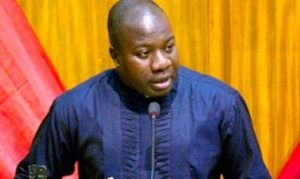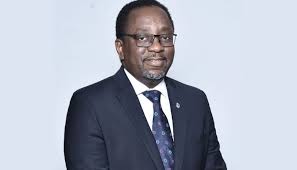The International Real Estate Federation (FIABCI), Nigeria chapter, in collaboration with World Citizen Consulting and the Centre for International Private Enterprise, has called on the Federal Government of Nigeria to bolster the nation’s property market. By addressing key areas such as property rights, access to credit, governance, dispute resolution, financial transparency, and regulation, the groups believe the government can greatly enhance the performance of the real estate sector and attract foreign direct investments. They emphasized the importance of stakeholders engaging with a property market handbook that evaluates the market’s strengths and weaknesses. By providing a comprehensive guide, it aims to inform reform efforts, ultimately unlocking the full potential of the market while ensuring inclusive economic growth and opportunities for all investors.
At the recent roundtable forum titled “Urban Property Markets Playbook,” various experts convened to discuss the pressing need for collaboration among stakeholders to create a more transparent and efficient real estate landscape. The event gathered leading professionals in the fields of land issues, valuation, land services, revocation, acquisition, and compensation, all focusing on the Lagos state property market. Bill Endsley, principal of World Citizen Consulting, discussed a handbook featuring essential global indices that contribute to sustainable property market development in economies eager for foreign investment. He identified six core components necessary for this growth: property rights, access to credit, governance, mediation, transparency, and sustainability.
During the discussions, Endsley highlighted the challenges posed by property rights violations, advocating for alternative dispute resolution mechanisms over traditional court proceedings to facilitate quicker and cost-effective resolutions. He underlined that while transparency issues persist, these could be tackled through greater cooperation among all parties involved in the property market. Endsley urged stakeholders to shift their focus from minor, lingering issues to actionable strategies that promote equitable development. He asserted that if policymakers actively pursue improvements in property access for Small and Medium-Sized Enterprises (SMEs) within eight months, the sector could experience significant progress. The overarching goal is to create a responsive property market that adapts to the current realities of economic demands.
Adeniji Adele, President of FIABCI Africa and the Near East, emphasized the initiative’s beginnings five years ago, when a property scorecard was developed to provide international investors with essential information and resources to navigate Nigeria’s real estate market. The newly introduced handbook ensures that access to this requisite information is no longer limited, which is critical for fostering a welcoming environment for investors. Akin Opatola, President of FIABCI Nigeria Chapter, also reinforced the handbook’s utility by offering foreign investors more accessible indicators for conducting business in the Nigerian property market, thereby strategically positioning the country as a viable investment destination.
Opatola further articulated that the Urban Property Market Playbook acts as a catalyst for the government, imploring policymakers to streamline processes for investors and equip industry players with the necessary information to guide their clients effectively. For example, he pointed out that reducing costs associated with title perfection could motivate more property owners to secure their titles and subsequently build their wealth. A better understanding of these processes would enhance the ability of real estate professionals to advise their clients accurately and efficiently.
Ayodeji Abdul-Akeem, the Senior Special Assistant to the Lagos State Governor on Housing, shared insights on the initiatives driven by the state to tackle the existing housing deficit. He mentioned that the local government is currently engaged in various housing projects and innovative urban regeneration efforts. With limited land availability in Lagos, the state is exploring vertical housing solutions and converting slum areas into modern smart and social housing complexes. These initiatives are designed not only to enhance living conditions but also to provide opportunities for the youth, ensuring that the housing deficit in the bustling city is addressed with sustainable and inclusive approaches. In summary, coordination among stakeholders, enhanced governmental support, and innovative housing strategies emerge as central themes for advancing Nigeria’s property market and nurturing its growth potential.














